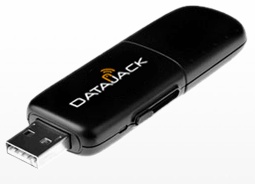3G is crap. And don't expect 4G to fix it
Ofcom should be tougher on mobile net providers

Being the best at something is only impressive if the thing you're good at is impressive.
Being the best at a sport is pretty impressive. Being the best at a musical instrument is impressive too. Being the best Lithuanian Eurovision entry, the most charming Mock The Week panellist, the best dancer in Radiohead or the most popular Lib Dem, not so much.
You can add Fastest Mobile Broadband (But Not Smartphones) Service to the second category.
The news that O2 has the Fastest Mobile Broadband (But Not Smartphones) Service comes courtesy of industry watchdog Ofcom, who found that mobile broadband is bloody awful. The average speed is a pathetic 1.5Mbps, and basic web pages took 8.5 seconds to download.
If you're in a great coverage area, that figure falls to 2.2 seconds - and urban areas have better coverage and therefore better speeds, except when they don't.
Speeds went to pot at peak times - dropping to 1.7Mbps between 8pm and 10pm - and "performance was highly variable across urban areas, with no guarantee of good performance offered in a city centre location."
Mobile broadband, then, is rubbish. And it's more rubbish in some places than in others.
Sign up for breaking news, reviews, opinion, top tech deals, and more.
Don't expect 4G to fix this
There are a couple of key things to note about the Ofcom research. The first is that it doesn't include smartphones, which are used in greater numbers than datacards and dongles, so if you want to know who's best for iPhones or Androids or for tethering then it's no help.
The second is that if you look at the report in some detail, it shows that rural users are getting stuffed.
"More than 50% of connections in the rural/semi-rural area surveyed (Herefordshire and Shropshire) had speeds of less than 500kbit/s, compared to 25% of tests in the city we surveyed (Birmingham)," the report says.
"This is likely to be largely driven by network availability of 2G and 3G/HSPA: over 95% of tests in Birmingham connected to a 3G/HSPA bearer, compared to under 60% of tests in Herefordshire/Shropshire...Geographic location is likely to be the largest single determinant of mobile broadband performance."
This is important, because 3G is everywhere it's supposed to be: the networks have hit their target of covering 95% of the UK population. As far as the networks are concerned, they've done their bit.
That's not much cop if you're in an area where 3G coverage is crappy (clue: if you can see green things instead of buildings, you're probably in a crappy coverage area).
And it's clear that mobile broadband is still some way from delivering Digital Britain's promise of 2Mbps connections for everybody, even in areas where fixed broadband isn't available.
With 4G LTE tests just beginning, Ofcom is preparing to auction mobile spectrum for 4G mobile networking - and once again the key figure will be 95% coverage. In other words, if your coverage is rubbish just now, don't think 4G is going to make things any better.
A group of MPs don't think that's good enough, and they want Ofcom to up its coverage target to 98% of the population. That would reduce blackspots without asking the impossible of the networks.

Contributor
Writer, broadcaster, musician and kitchen gadget obsessive Carrie Marshall has been writing about tech since 1998, contributing sage advice and odd opinions to all kinds of magazines and websites as well as writing more than twenty books. Her latest, a love letter to music titled Small Town Joy, is on sale now. She is the singer in spectacularly obscure Glaswegian rock band Unquiet Mind.